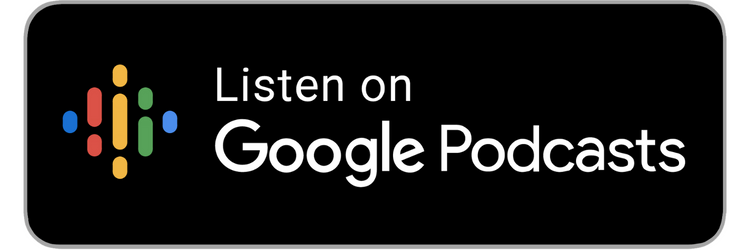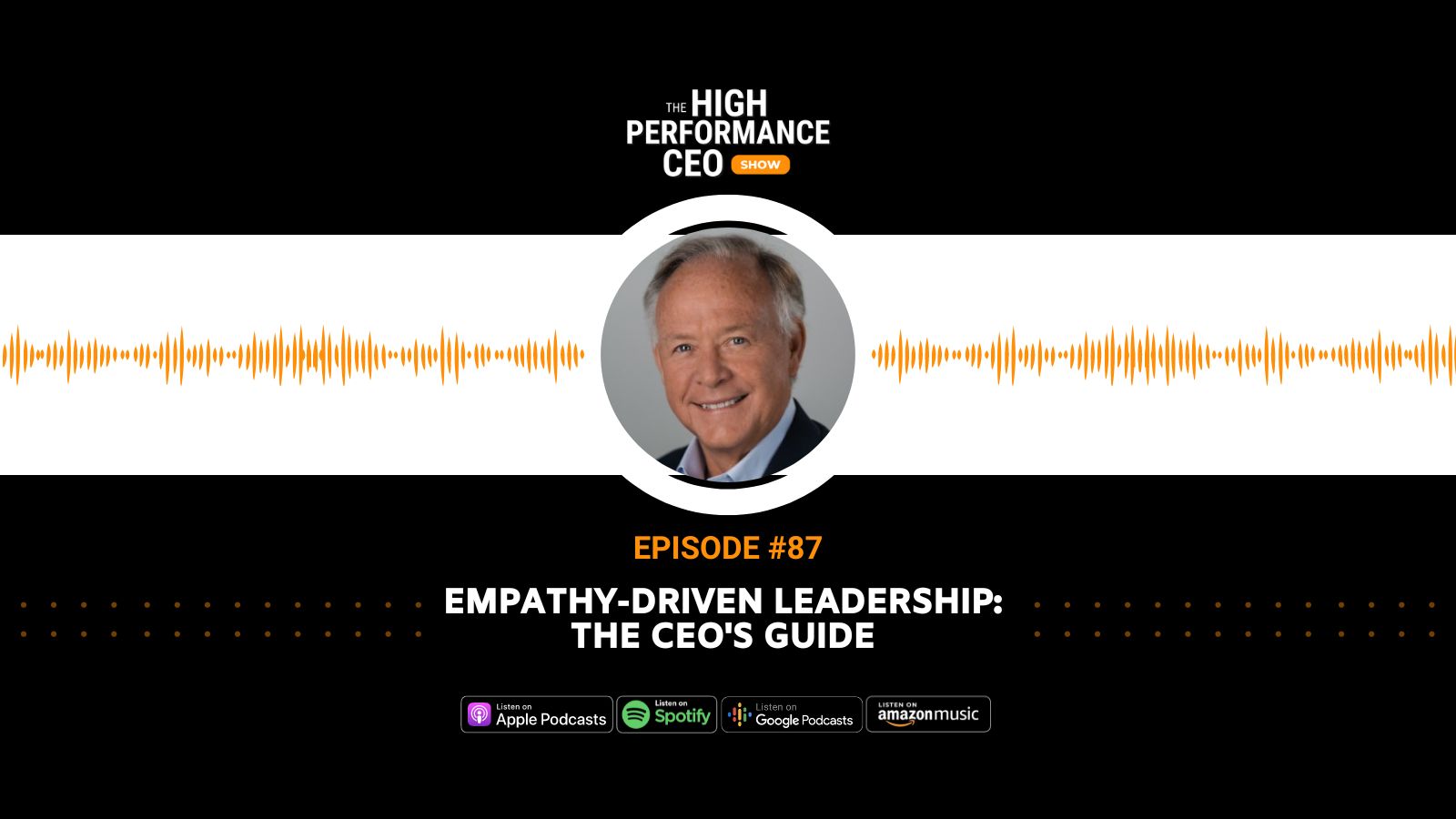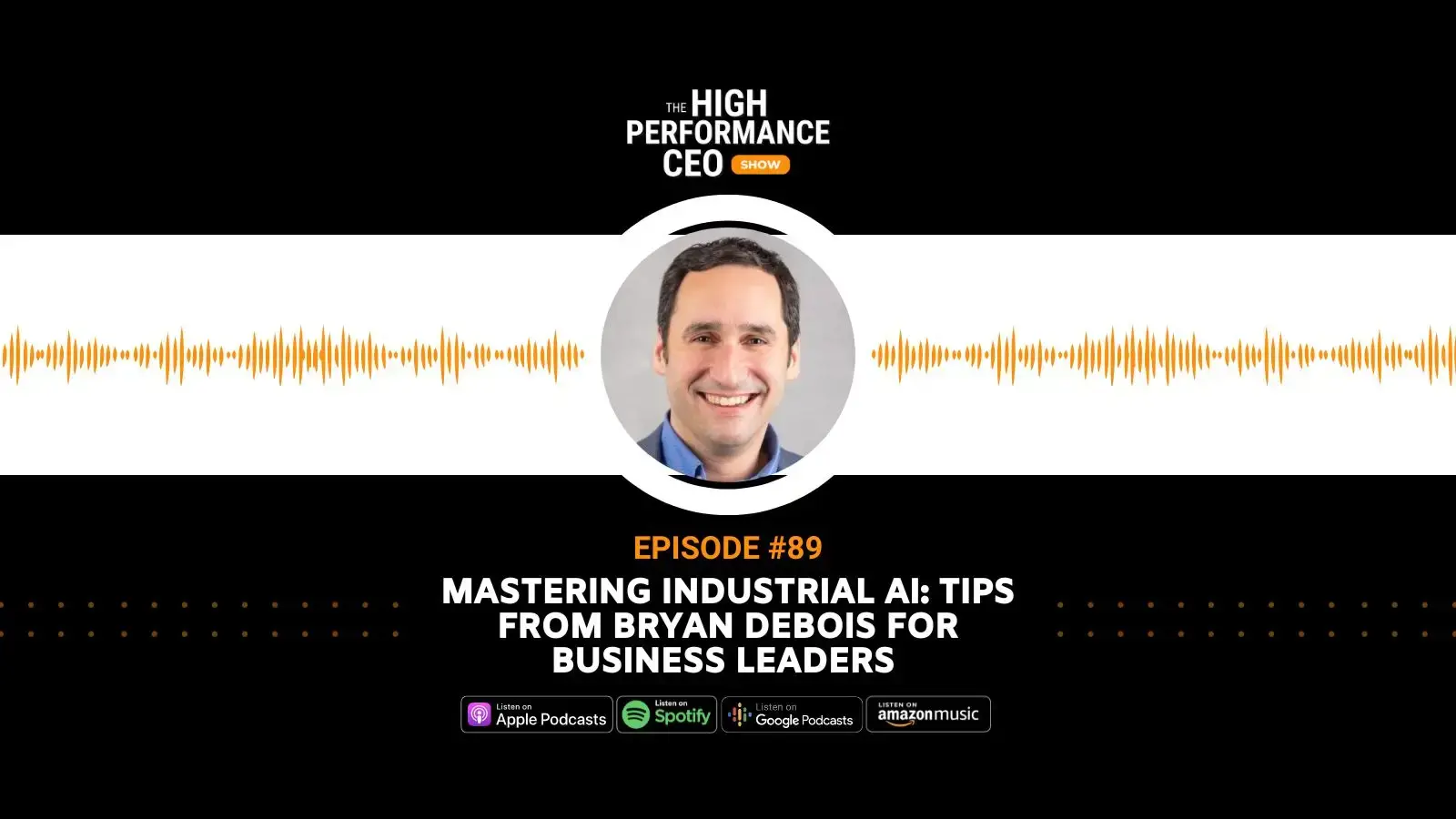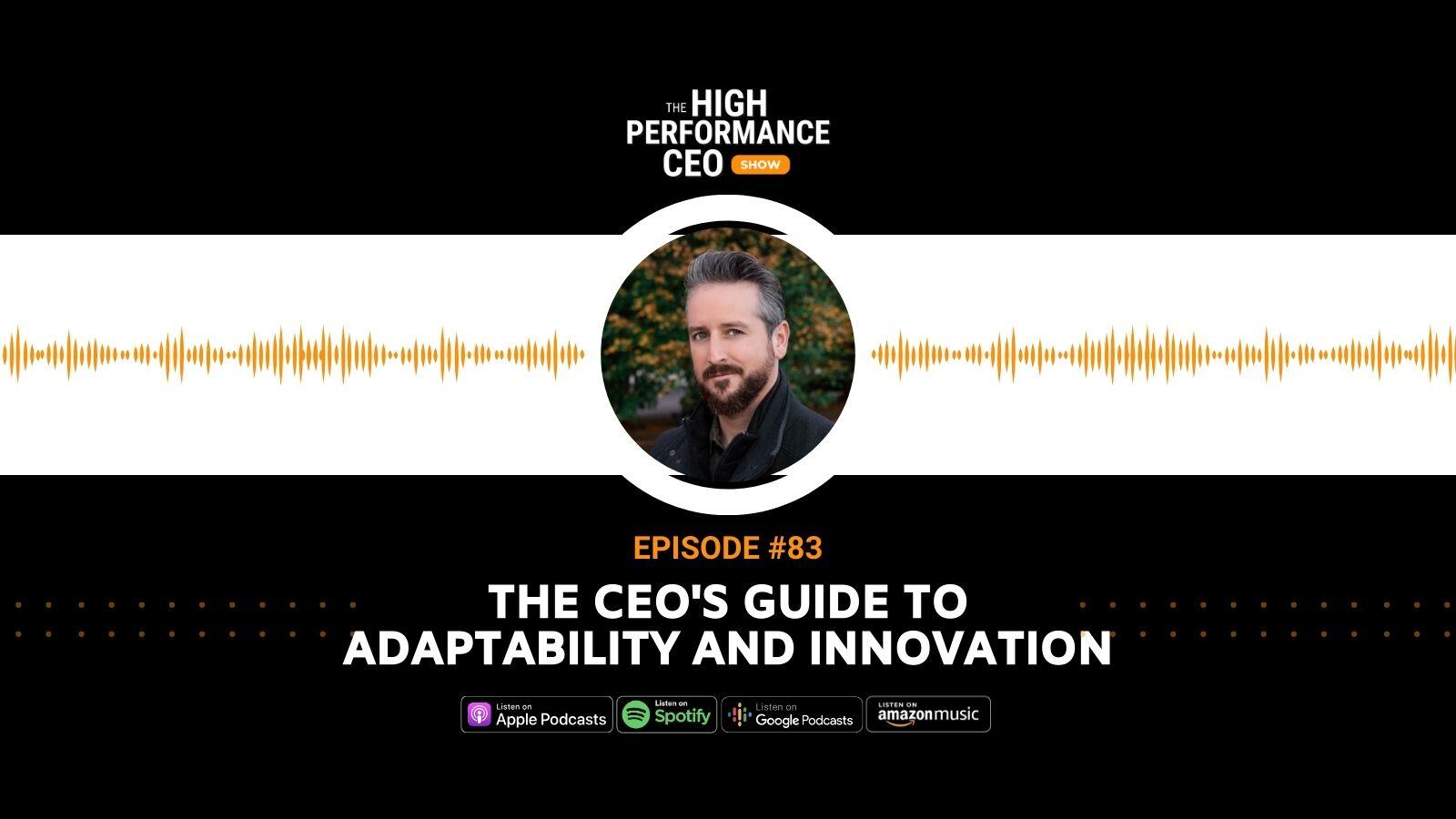23 min read
The CEO's Guide to Data-Driven Leadership & Resilience
 Sebastian Schieke
:
Mar 15, 2024 1:00:00 PM
Sebastian Schieke
:
Mar 15, 2024 1:00:00 PM
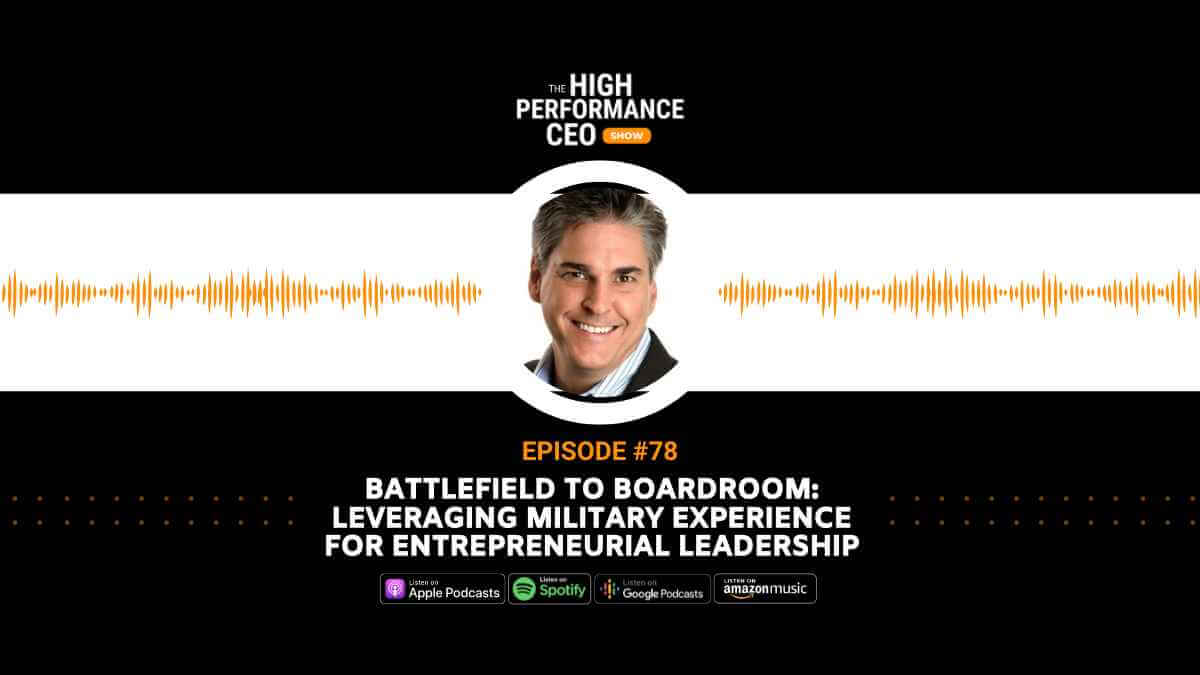
Episode Summary:
Cary Sparrow shares his journey from the structured U.S. Navy into entrepreneurship, highlighting adaptability, resilience, and data-driven choices. This episode is a great guide on transforming military training into effective business tactics, especially through the creative use of real-time labor market data.
About Cary Sparrow:
- Cary Sparrow has a mix of experience from military service, engineering, and entrepreneurship.
- He's all about using the solid training and problem-solving skills he gained in the U.S. Navy, even on nuclear submarines.
- Cary is the brain behind Waxspace, a company that's all about transparency in the job market through real-time data analytics.
Key Takeaways:
- Being Adaptable and Resilient: Cary's experiences show the importance of adapting to challenges and coming back stronger, which are key traits for CEOs navigating the ever-changing business world.
- Taking Action: Instead of waiting around, Cary believes in making bold moves, a crucial factor for entrepreneurial success.
- Embracing Different Perspectives: Cary's military background taught him the value of listening to diverse team members, no matter their rank or background. This practice sparks innovation and problem-solving in business.
- Efficient Project Management: From handling Navy projects, Cary learned skills that directly translate to running a business, stressing the need for efficiency, coordination, and strategic planning.
- Data-Driven Decisions: Cary's work at Waxspace demonstrates how data insights drive smart decisions, showing the power of using data for strategy.
Why It's Important for CEOs Like You
This episode reveals how CEOs today need to be adaptable, make quick decisions, and rely on data for success in the fast-paced business world. Cary's shift from Navy officer to entrepreneur shows how military leadership skills and strategic planning can be creatively applied in business to boost resilience, gain a competitive edge, and foster sustainable growth.
CEOs can get tips on leveraging diverse perspectives and real-time data for wise decision-making, setting a strong foundation for overcoming challenges and seizing market opportunities.
What CEOs Can Start Doing
- Embrace Taking Action: CEOs should promote a culture that appreciates making quick decisions and taking risks to stay ahead and foster innovation.
- Nurture Flexibility: Support ongoing learning and adaptability in the team to swiftly tackle market changes and obstacles.
- Use Data for Smart Decisions: Invest in data analytics tools and skills to make well-informed choices based on real-time insights, boosting competitive edge.
- Encourage Diversity and Inclusion: Seek out and value various perspectives within the organization to boost problem-solving and innovation.
Conclusion
This episode featuring Cary Sparrow really resonates with how military discipline mixes with business smarts. It shows how being adaptable, planning strategically, and using data can make a big difference in today's business world.
Cary leverages his Navy expertise, showcasing how leadership, efficiency, and embracing diverse perspectives fuel innovation and bounce back stronger. For CEOs and business leaders, the insights here lay a roadmap for tapping into real-time data analysis and building inclusivity to stay sharp and meet market needs. This conversation points to growth and creativity and highlights how taking unique approaches can lead to business wins and top-notch leadership.
Chapters:
- Introduction to Cary's Journey (00:02.687 - 01:35.054)
- Sebastian Schieke introduces Cary, discussing his transition from the Navy to entrepreneurship, setting the stage for the conversation about leveraging military experience in business.
- Experience in the Navy (01:36.627 - 09:44.682)
- Cary shares insights from his Navy career, focusing on adaptability, leadership, and technical skills development and how these have influenced his business philosophy.
- Founding Waxspace (09:46.707 - 18:32.447)
- The conversation shifts to Cary's entrepreneurial venture, Waxspace, detailing the motivation behind its inception and the impact of real-time labor market data analytics.
- Leveraging AI and Data Analytics (18:49.563 - 25:48.198)
- Cary discusses the use of AI and data analytics in understanding labor market trends and improving business strategies, highlighting the innovation at Waxspace.
- Impact of AI on the Labor Market (25:40.683 - 34:05.067)
Read the full transcript here
-
Transcript
Sebastian Schieke (00:02.687)
Kerry Sparrow, welcome to the High Performance CEO Show. Today we talk about an interesting journey from an engineer's, with an engineer's background. Kerry was a veteran for the United States Navy. He worked as a vice president at Cargill and now he founded his company, Waxspace, in 2015.
bringing transparency to the labor market. Kerry, welcome to the show.
Cary (00:36.554)
Hey, thank you very much for having me today.
Cary (00:50.862)
Did you hear me okay?
Sebastian Schieke (00:51.727)
I didn't hear anything, sorry. We had a technical hiccup. I didn't hear... Strange, didn't hear anything you said. Yeah, I can hear you now. Oh, we start again. Dave, we need to...
Cary (01:02.894)
Can you hear me now?
Cary (01:08.194)
You want to take it from Welcome to the Show?
Sebastian Schieke (01:11.571)
Yeah.
Kerry, welcome to the show.
Cary (01:16.138)
Hey, thank you very much for having me today.
Sebastian Schieke (01:19.251)
We had just had a quick pre-discussion, and you have a very interesting background. I mean, we both have an engineering background. I started electro engineering. I don't know what subject you focused on.
Cary (01:35.054)
class it was computer engineering.
Sebastian Schieke (01:36.627)
Computer, yeah, so very similar. And then you went to the Navy and we just said, hey, I mean, you worked at the nuclear submarine. So maybe before we dive into business, it's unfortunately a very, it's a topic which is highly discussed at the moment because of the conflict in the world. So.
What kind of job?
Sebastian Schieke (02:09.661)
How can we imagine being on a nuclear submarine? I mean...
Cary (02:14.482)
It's really pretty remarkable actually what the crews on nuclear submarines do, especially given how young they are. And so it's a little bit difficult to imagine. But let me try and paint a picture. First of all, the Navy was gracious enough to pay for my college education. I got a Navy scholarship, which was very generous. And they let me go.
to any university that I could get into. And so I went to Rensselaer Polytechnic to major in computer engineering. And the return part of the deal was that I needed to work for the Navy for at least five years after I got out. I always liked doing kind of interesting things. I thought the Navy was pretty interesting. Kind of get up and go places and see things and be kind of out there in terms of some of the most
you know, interesting, intense places in the world. And I found that appealing. And I found submarines especially appealing because they're very spooky. Nobody knows what submarines do. And, you know, this was the height of the Cold War. And so, or the tail of the Cold War. Yeah. So anyways, as a junior officer, when I was 22 years old, I graduated from college. I went and I did a year's worth of training to learn how to run nuclear power plants.
Sebastian Schieke (03:23.807)
How does it?
Sebastian Schieke (03:28.66)
Yeah.
Cary (03:37.166)
because all the submarines in the US Navy are powered by nuclear propulsion. And so basically, 60% of a submarine, when you look at it, is a big nuclear power plant, which is run very, very well. Nobody even questions that there's nuclear power plants sitting in ports right next to big cities. And that's the first thing you learn how to do, is learn how to run a power plant. And then you learn how to run the submarine. You learn how to maneuver it. You learn how to navigate it. You learn how to...
We learned all the tactics, combat tactics and surveillance tactics. I was on fast-attack submarines, which meant we went out and looked at things and followed people and a very fluid operational schedule. All of that was very dynamic and very exciting and very geeky. You had to have a very strong technical background. You had to get a wide range of engineering topics.
from electrical engineering to mechanical engineering, materials engineering, nuclear engineering. I mean, it was a really intense training program to do that. It was really rewarding. But, so I was in for eight years, I was on two Fast Tech summaries. And the things that stuck with me the most coming out of that were not really obvious at the time that they would be necessarily the most valuable things. One is,
You learn how to deal with all kinds of people. People in the military come from all kinds of backgrounds. Some of the people that are the smartest, that you have to pay the closest attention to, are the most junior people that you're going to work with. These are, you know, 18, 19, 20-year-olds that know their particular area very well, and you would be a fool to disregard their perspectives. In other cases, as a young junior officer, you know, I had chiefs, very senior enlisted folks that were.
20 years older than me that were extremely wise. And again, you'd be a fool to ignore anything that those folks were telling you and teaching you. So learning how to deal with a wide variety of people was a huge kind of eye-opener and a huge skill that's lasted with me for a really long, really long time. Being able to work in a very high dynamic operating tempo. So coming in the morning and finding out that everything you thought you were gonna be doing that day and that week was now changed and adjusting.
Sebastian Schieke (05:53.819)
Oh.
Cary (06:00.714)
everything that had to happen in order to meet these new requirements was something that was a typical part of the job. That stuck with me as well. Being resilient to changes in situations was something that paid off when I was in consulting. I love consulting because there was always something new. You'd get an opportunity to go help a client and you'd have to learn that thing very, very fast and be able to come in and start adding value and start contributing immediately.
My ability to do that was rooted in what I learned in the Navy when we had to change on a dime. Some of the other things are a little bit more intangible. For example, on fast tech submarines, you train to fight, and so you train to fight other ships, and you train to use all of your
Sebastian Schieke (06:36.455)
I mean.
Sebastian Schieke (06:52.199)
No.
Cary (07:00.322)
to a maximum extent, which means that when the situation arises, you have to take advantage of it. You have to recognize that something is going on, either good or bad, and you have to act, and you have to take advantage of it. And one of the things that exists in a lot of corporate environments is a real aversion to risk and action. It is so much easier for executives to do nothing. The default is kind of doing nothing and working risk out of your...
Sebastian Schieke (07:26.951)
Yeah.
Cary (07:28.182)
area, whereas I was taught exactly the opposite, which is the biggest risk is doing nothing. And when I founded my own company, that's absolutely true. Our biggest risk is not doing anything. Our biggest risk is that the world's going to overcome us if we don't get a foothold fast enough. And that's always been the risk since day one. And that kind of bias towards action was something that, again, at the age of 24, I was living in the Navy in summer.
and it's really stuck with me. There's some other things that are kind of interesting. You know, one of the things that you'd never really think of is project management, really complex project management. But we would pull into port, and we would have to immediately, you know, get set up with all the maintenance organizations that needed to do work on the sub. And then we'd have to oversee a maintenance schedule that had to be finished right and on time.
in order for us to meet our next operational requirement. And usually that was a turnaround of just a couple days. And you're talking about pulling out major pieces of equipment, doing it safely, not hurting other, not hurting people, not hurting other, you know, pieces of equipment, making sure that everybody that needed to be involved was there when they needed to be there, that they were trained, that they understood what needed to be done, that everything got done, that everything got tested and put back in place and you were ready to go when you needed to be. And that was all in the hands of, you know, junior officers and, you know, enlisted folks that.
In most cases, the average age was less than 26. And so that kind of ability to organize really complicated workstreams paid off really, really well, especially in consulting, being able to manage multiple. I was pretty good at managing very complex projects. In my business now with Wagescape, we've got any number of things that are going on. And so being able to keep all of that straight and making sure that people are aligned.
and the resources are in place and that we're adapting as we go is all essential to what I do now as a CEO. Again, all of this can stem from my first four years out of college when I was, you know, I have a friend of mine who was in the Marines and his saying was equally true in submarines which is that his easiest day in the Marines was harder than the hardest day he ever had in the corporate world. I would say that that's...
Sebastian Schieke (09:29.291)
Mm.
Cary (09:44.682)
Absolutely true, which is kind of the final thing, which is you learn how to deal with stress and just roll with it you know, I Part of my training was with the Marines when I was in college and I got yelled at by the world's you know best professional yellers in the world and so You know, I people, you know have told me regularly throughout my career that almost nothing fazes me. I'm like, hey, you know, I Have a little bit different perspective on what stress ought to be
Sebastian Schieke (09:46.707)
Yeah.
Mm.
Sebastian Schieke (10:01.035)
I'm going to go ahead and turn it off.
Sebastian Schieke (10:08.019)
Yeah. That's it.
Yeah, it seems like a perfect preparation training for business executives, they're being in the army. I mean, I interviewed a F-15 fighter pilot a couple of weeks ago, and basically the same story. He crews a much resilience and strength that business is a piece of cake for him. And that's the same what you're saying.
Sebastian Schieke (10:43.381)
almost every day, you know, we come into office and something happened and then you have to refocus, you have to fire fight, yes, normal business activities. And this is what you, we are well prepared going through this training in the Navy. Being on a submarine, I mean, you also, I can imagine you're also very close
Cary (11:03.562)
Yeah, I think anybody who's... Oh, go ahead.
Sebastian Schieke (11:12.015)
together with many different people for a longer period of time. So, also this is most likely helping you when you run your team, your staff, you have to deal with different personalities, you have to spend time with them and grow your organization.
Cary (11:34.698)
Yeah, I mean it was pretty, there was not a lot of personal space, right? So you get very, very close to the people around you and you learn how to get along, even with people that you don't necessarily like or agree with. You learn to put aside differences in order to, you know, have a productive, you know, life basically, not just a working relationship because you go and you live on these platforms. And at the same time you...
Sebastian Schieke (11:41.682)
Oh.
Cary (12:02.994)
you learn to put first a very deep respect of the capabilities of your colleagues and a very great trust and interdependence knowing that they've got your back and you have to have theirs regardless of what you think of this person. I think that kind of view we could use more of in lots of parts of the world.
Sebastian Schieke (12:23.611)
Definitely. Now you focus on data from the labor market. So what exactly you collect, who's requesting this data and can you give us a management overview about the current state of the labor market in US?
Cary (12:42.87)
Sure, sure. So people were probably like, wow, you went from submarines to some other things and now you sell labor market data, how'd that happen, right? So one of the things you gotta know about me is like, I'm a dyed in the wool geek, I always have been. I fell in love with computers when they first came out and I remember when the personal computer first came out, I'm old enough for that and that got me hooked. And...
And I love analytics, I love the mathematics, I love being able to find things in data that other people can't see, and I love that kind of process of discovery, and always have throughout my various careers. And I also have a pretty deep passion about things like jobs and the potential of people. And I've got an economics background. From, that's where I did my business degree, it was...
Sebastian Schieke (13:35.508)
Mm.
Cary (13:35.586)
grounded in economics. And so I've seen firsthand kind of how bad information about things like jobs and paying skills really is. And I also came to very deeply appreciate that it didn't have to be that bad. So like let's say if you wanted to invest in a stock, right now you could go online, any number of sources online, and they would tell you down to the microsecond what that stock is trading at, down to the penny.
and they could execute a trade really quickly. If you wanna know how much to pay a person, it would be the equivalent of like saying, okay, I wanna buy 10 shares of Microsoft, and the broker would come back, and you'd have to deal with the broker. You couldn't do this just by yourself. You'd have to deal with the broker, and they'd be very expensive, and they would come back to you and say, well, if you wanna hire a construction worker in Seattle, based on what people were paying,
nine months ago, you're going to need to pay anywhere between $18 and $28 an hour.
That's real. That's the current state of pay data, the way that people have typically done it. And it's unusable. It's late, it's imprecise. You have to use experts in order to understand it. And I saw kind of all the waste and all the lost opportunity for innovation that this kind of approach was taking. It's not just pay, right? So you wanna know what a local economy is doing in terms of the number of jobs that are being created. Good luck with that, finding out anything that.
is as of right now. You want to find out which populations of a community are being advantaged or disadvantaged based on hiring patterns in that community. You're not going to be able to find that out using traditional data. I founded Wagescape to solve these kinds of questions, give people a real-time, very precise view of what's happening in the labor market. The labor market to me is not some esoteric concept. It's jobs, it's pay, it's people. The labor market touches...
Sebastian Schieke (15:40.703)
Stay tough, yeah.
Cary (15:41.17)
every individual, every family, every community, every government, every company, every organization in the world. It touches everyone and it's hugely important. But any big economy that has really bad information, it means that it's got really horrible inefficiencies and you're just wasting all kinds of opportunities for innovation. Whereas if you kind of pull the covers back and say, here's what's going on, then you have lots of... We have...
tons of people were really, really good at people with great ideas that once they can see something, they can find a unique way to connect dots to create value for people and companies. So that was really the goal. We set about in 2015 by building a platform that pulled in from millions of web pages what was happening with hiring. We started in the US. We inventoried all the jobs that were open on any given day, and we still do. We got really good at figuring out what...
companies are going to pay for those jobs. And we got really good at really picking apart what companies needed in those jobs, so skills, experience levels, and so forth. And we created a platform that now allows people to do all the things that I just said you can't do. So if you want to know what your competitor down the street is paying somebody as of right now, our data tells you that. If you want to know in a community which types of jobs are growing in demand and which ones
are not and is the pay growing or is it shrinking as well? Our data tells you that. And it tells it to you as of right now. If you're a recruiter or you're a hiring manager and you need to know who's competing for the talent that you have, in most cases, by the way, there's a hundred times more companies competing for the same talent you're going after than you're even aware of. But there's no reason why you can't know that. And that's what our data provides. So we put together this data platform and I deliberately set up the business to just sell the data, not to sell.
you know, applications for your phone and things like that, because I wanted to give other companies and other individuals the opportunity to use our data to create those kinds of innovations instead of kind of pigeonholing my own company in one area or another. And that's what we did. We got some really great brands, you know, that came on board, pretty sophisticated, you know, consulting firms, big corporations, universities to start with. And as we've gone...
Cary (18:01.119)
We've expanded outside of the US. We've gotten more and more clients and more and more types of things that our data solves.
Cary (18:18.026)
Hey Sebastian, can you hear me okay?
Sebastian Schieke (18:21.223)
Yeah, sorry, I always have to, Dave, please cut us out. I always have to wait because there's always a delay when you speak, so there's a, you speak, then there's silence, and then I wait, and then you pick up again, so don't worry. I hear this. I mean, it's, that's very interesting. And you only use public available data. So you basically scrape the internet, you look for a job offer openings on company pages, on job boards. You don't have any...
Cary (18:27.671)
Okay.
Cary (18:32.447)
Okay, all right.
Sebastian Schieke (18:49.563)
any link to any data agencies or any government data which you buy or you integrate in your service.
Cary (18:58.518)
Yep, that's right. We only use publicly available data. And so everything that we capture, we can publish. We don't have to worry about it. We don't hack into any systems. We don't go beyond firewalls. In fact, we don't go beyond firewalls at all. It's only what's visible to the public on the web with no special access requirements. And as a result, it means that there's very few restrictions in terms of how that data gets used.
because it's all out in the public to start with. We just pull it together on a massive scale. We're crawling over 10 million web pages every day. And we're doing it very fast. So we take a full picture of what's going on every single day. And then we pick apart. We do use AI and proprietary algorithms to figure out that. Yeah.
Sebastian Schieke (19:28.331)
Mm-hmm. Yeah.
Sebastian Schieke (19:53.675)
I just wanted to ask, I mean, we are in the time of AI, how you leverage artificial intelligence? You probably could build great language models with your data.
Cary (20:01.194)
We do it a few ways. We have methods that we've developed. First of all, I have a, one of the things I picked up along the way is I actually have training in artificial intelligence. Before it was even called machine learning or anybody had ever thought of LLMs. And I've got a couple of patents in it as well. And so those patents allow us to integrate data and to do it in a way that
Sebastian Schieke (20:21.086)
Mm.
Cary (20:29.002)
you can line up data from different sources and look at it through a common lens. So, you know, what one company calls an HVAC technician, another company might call a environmental control specialist, but they're actually the same job when you look at it. But, you know, how do you figure that out? That's some of the stuff that we've had to develop and are very good at. So if you wanna see what the market for HVAC technicians are, you...
know that it includes the environmental specialists too. Figuring out what companies are going to pay for given jobs is another thing that we are uniquely good at. Even in the area of pay transparency that's burgeoning right now, only about 20% of all job listings in the US have any kind of pay data in them. But we're able to figure out what companies expect to pay based on what they put, how they.
Sebastian Schieke (21:13.886)
Mm.
Cary (21:26.782)
a few different things in about 70% of the cases. And we've got AI models that allow us to figure out with pretty high reliability what the expected pay levels are for the remaining 30%. So we have a very, very complete picture of what's going on with pay and very granular. So you wanna know what a given company is paying for a given job that maybe they posted two days ago, that we've got the ability to provide that kind of insight. So we...
We do that. Another thing that's, I mean, these are really kind of geeky things, but go ahead.
Sebastian Schieke (21:55.171)
And when we, I mean, we understand.
Sebastian Schieke (22:03.483)
Sorry, Dave you have to cut this. I just had to wait again. I don't know why, never happened before. It seems a very unstable connection. But what I wanted to ask, we are in this time with this massive enhancement of AI and the general message that AI will change the labor market quite a lot.
Do you already see patterns or movements in this area that you say, we have a clear change in request skills, change in recruiting patterns related to the rise of technology and the change in how we, yeah, how especially we knowledge workers approach our work.
Cary (23:00.974)
Absolutely. It's a dramatic change. It changes that are unfolding every day. That range from something that touches lots of people. You know, any high school and university student can now use AI in very, very practical ways to enhance, you know, their education and their ability to communicate what they know. And teachers, you know, are having to rethink what they're really, you know, how they measure the quality of what students are learning as a result of that. Because if you can get a...
Sebastian Schieke (23:19.968)
Mm-hmm.
Cary (23:29.87)
if you can get an LLM to write a term paper for you and do it very credibly, what's the real learning objective that you're trying to accomplish there? Tech, in tech, one of the things that LLMs do really well and they're getting better every single day and are gonna be light years ahead of us is code. So they're really good at taking kind of programming objectives and translating them into code. And we do this ourselves.
We've created models ourselves that allow people to ask questions about what's going on in the job market. And then those models create custom coding to go answer those questions. And so tech companies are already pivoting into AI to take advantage of those capabilities, which means that if you're a tech professional and your job is around coding, then you need to be thinking a few steps ahead in terms of where your career is.
is going and how to take advantage of that kind of capability, not run away from it, but take full advantage of it because companies are adapting very, very quickly. Other areas that are content heavy, like marketing, for example. I've got a number of friends that are in marketing and we do this ourselves. We use the usual suspects in terms of online, large language models to write content. I just hired a position this last week where the job position...
the job description, I just basically talked or I typed as I talked to say, here's what I wanted to do. And I got a very, very well put together job advertisement that was like 98% there. I just had to make a couple of tweaks. And so if you're in the business content generation, you're in the firing line right now. And again, it's a question of how do you take advantage of these new capabilities and how do you become resilient?
pursue the opportunities that they represent. But it's happening really, really fast. Now, there's all kinds of horror stories that are developing too. The whole notion of hallucinations is really real. So these models can, they're like the person that comes in and knows everything, right? And they talk with huge confidence, but if you get a real expert next to them, they'll be able to quickly point out when they're just making it up.
Sebastian Schieke (25:31.627)
Mm.
Sebastian Schieke (25:36.117)
Yeah.
Sebastian Schieke (25:40.683)
And they're very convincing.
Cary (25:48.198)
And there's definitely limitations there. And I think that a number of us have seen examples that are really just kind of funny, um, if they weren't so serious, you know, so the, I think, you know, there's, there's a real risk when you start to get into things like policy decisions or IOT or things where actions that happen in the, in the physical world are being, um, are being mediated by.
these AI models where there's a lot of risk that has to be very, very carefully understood and managed. But in terms of what's shown up in the labor market, we're seeing it across the board, I would say.
Sebastian Schieke (26:26.583)
Yeah, I read just two or three days ago, I read an article that Amazon, I think it was Amazon, they monitor their delivery people with bots, bots measure how fast they deliver the parcels. And then there are even cases where the bots fired the delivery people because they didn't achieve the KPIs.
Obviously also something we have to monitor very carefully, that a bot is not making these kind of decisions, and that there's always a human intervention included in the process.
Cary (27:08.77)
Well, there's always going to be that tension and this is the risk, right? I mean, companies are always going to be looking for ways to drive efficiency and drive performance and there's always going to be the temptation to put more and more on the bots and the people that are making those kinds of design decisions don't always necessarily understand the limitations of the bots themselves. And so that's a risk I can think of. We could probably sit here for the next five minutes and come up with a hundred different individual companies where there would be the temptation to take
take that approach. Like a lot of the rideshare companies come to mind where monitoring productivity is, there's a lot of incentive to want to be able to do that. So you're right. This is a new frontier on all kinds of fronts and it's moving really, really quickly. I personally don't have the kind of doomsayer world outlook that some people are adopting. I think that it's more a question of there's just great opportunity.
You know, that creates risk, but we'll learn how to manage it.
Sebastian Schieke (28:15.271)
Yeah, I mean, I also see the opportunities and the amazing things we can do, the abundance we can create. I recently interviewed a CTO from a tech company and they created a platform for agents and the agents will conduct transactions with each other and basically run in a fully automated business, which then is text and with the text, you create wealth in your government, in your communities. I mean...
There are a lot of amazing things we can do. And I'm all very positive, and I think it's an amazing time we live in, the change we experience. And it's always funny, this exponential development in tech, we talk about this for probably a decade. And I never really saw this. For me, it never really felt exponential. But it's because we're on the lower end of the tail.
we really get into this exponential segment where, I mean, every week something new happens and a new breakthrough and even faster and more capable large language model is appearing. It's crazy. It's really...
Cary (29:31.586)
So you're absolutely right. I love the quote from the author William Gibson, who's a science fiction, a near future science fiction writer. And his quote goes to the effect of, the future is already here, it's just not evenly distributed. And like three years ago, so one of our research partners is Stanford University. And three years ago, they came to us and said, we think that,
Sebastian Schieke (29:46.475)
Mm.
Cary (29:59.65)
these GPT models are gonna be hugely disruptive. And we wanna understand kind of, you know, how the labor market, you know, how jobs could be impacted and pay could be impacted by that. And my first reaction was what are GPT models? Nobody had ever heard of these things, right? But the folks at Stanford were really tied into this and they could extrapolate out where it was going and they were right. And what they wanted to do was they wanted to go in and look at the content of all jobs and see which ones, you know, were gonna be
Sebastian Schieke (30:08.476)
Mm.
Sebastian Schieke (30:15.347)
Yeah.
Cary (30:29.446)
most susceptible for being able to apply automation that large language models could bring to bear and then start to look at different scenarios in terms of reconfiguration of work and so forth. And it was all really interesting. But they saw this basically two years before the rest of us even knew it existed. And when you pull up, on the one hand, there are organizations I know.
that will not adopt some of the things that we're talking about for another five to 10 years, because companies just, especially big companies, just don't move that fast. And there are other places that are already thinking of things and doing things that we won't know, most of us, even at the forefront of change, won't know about for another couple years. So it is, and that, you know, that again goes back to the more capability that you have and the more information that you have, the more you can innovate and the more value you can create from that.
Sebastian Schieke (31:05.04)
slow. Yeah.
Cary (31:25.078)
And I find that really exciting.
Sebastian Schieke (31:29.563)
Yeah, it is definitely an amazing time we live in. And I mean, you are the forefront of labor. You really see this, you can predict what's happening in the next year or so. Or even, I mean, the amount of information you gather is very valuable. And...
I think we should maybe reconnect in a year's time and see how the world has changed and how the labor market has changed as a result.
Cary (32:10.23)
Yeah, I think that there's a lot of questions that are really important that are in flux right now. A year ago, my predictions for the labor market would have been probably, I think I would have gotten about two thirds of them right. But there are things like how is remote work gonna play out that is still far from being answered, I think. I think you can read what's in the news and you can read individual case studies, but when you look in aggregate, I think that there are trends there that are first of all unstoppable and also.
most people don't see yet, that are going to fundamentally change the way that society works because of the lasting impacts there. What's going on with pay is another big question.
Sebastian Schieke (32:45.303)
Yeah, also the ability to leverage remote workers from all around the world.
Cary (32:51.854)
Mm-hmm. Yeah, I mean, my company was set up, yeah, my company was set up to be remote even before remote was a thing because I just knew that if I could, you know, and I had experience with global teams and so I knew that if I could tap into talent anywhere in the world that it was going to be a lot more flexible and a lot more, you know, nimble. And it was the kind of the kind of organization that I wanted to build. I didn't want to have
Sebastian Schieke (32:56.08)
I think Dave will have...
Cary (33:22.058)
you know, I didn't want to have office space that I had to pay for. I, as soon as you get rid of that requirement, you can, uh, you can pretty much get whoever you want, wherever you want, as long as they're available and they find what you have to say, appealing to their own, their own interests. So.
Sebastian Schieke (33:36.891)
Exactly, yeah. Great. Hey, Harry, thank you so much for sharing these insights. And as I said, I would love to reconnect in a couple of months, half a year, a year, to see how things have developed. And until then, yeah, wish you all the best and lots of insights.
Cary (34:00.238)
So, Sebastian, thank you very much for having me today. It's been a pleasure talking with you and your audience.
Sebastian Schieke (34:05.067)
Thank you.
Check out our other channels:
Instagram: https://www.instagram.com/sebastian.schieke.official
YouTube: https://www.youtube.com/@thpcshow
LinkedIn: https://linkedin.com/in/sebastianschieke
Website: https://www.sebastianschieke.com



